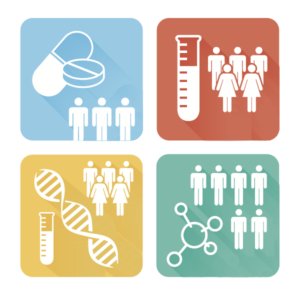Mental Health and COVID-19: Self Care During Quarantine

Over 6 months into the COVID-19 pandemic, the way offices, schools, businesses and other establishments operate has changed considerably. Most of us have switched to work or study from home amid a growing number of cases and safety measures brought in by governments around the world. Normal life has been disrupted.
Job losses and economic setbacks are only the tip of the iceberg. Thousands of coronavirus cases and an unpredictable future has led to several societal and personal issues. Mental health is one such issue that has slowly grown from being a taboo subject to a present-day reality. Isolation has led to rising levels of depression and loneliness for many.
Young children and young people are affected by the pandemic as much as any other age group. Instances of anxiety and depression among children are on the rise. As schools are set to remain closed or run at a limited capacity for sometime, it has become critical for us to address growing child and adolescent mental health concerns as well.
During these unpredictable times, it’s certain that we must support each other to ensure societies don’t fall apart. BioPharma Services has put together some suggestions to help support the mental health of you and your family during this period.
Social Media Distancing
Social media platforms do have an impact in our lives, sometimes for the better and other times for worse. It’s only normal that during quarantine, time spent on social media platforms has increased manifold. It’s fun to share new accomplishments on social media, but it shouldn’t be used as a metric for comparing yourself to others. If you begin to feel the content you consume on social media gives you anxiety or causes depression, it’s recommended that you take a break and focus on the positive aspects of life.
Adapt to New Technologies: The pandemic has introduced us to newer ways of socializing and staying in touch with family and friends. Can’t go out? No problem! This period has taught us new ways to connect, to an extent that many of us are enjoying our meals while on a video chat with friends and colleagues miles away. Since seniors are disproportionately affected by the pandemic, it’s only wise to keep family close via video calls.
Role Model for Kids: Children tend to learn from their parents and lead by their example so it’s important to not catastrophize the situation and encourage positive thinking. Taking care of your own health and well being while making your children a part of your morning exercise routine can prevent depression and strengthen family ties. Encourage healthy eating and good hygiene during these times to keep your young ones safe.
Physical Health:
Physical health is as important as your mental health. In fact, in many ways both go hand in hand. It’s important to fuel your body with healthful food and a balanced diet. Take deep breaths and stretch often. If it’s possible to step out for a walk or run, do so. A healthy body fuels a healthy mind.
Learn Something New: The pandemic has provided us with lots of time to learn something new. Staying home is a good opportunity to try out a new hobby. Reading books and developing new skills is something each one of us can attempt to do during these times. Journaling and recording memories are a fun and easy activities to try out and may even prove therapeutic.
Create Routines & Daily Plans: Staying home has thrown us all off our daily schedules. Normal routine activities have taken a backseat and the world is busy adjusting to the new normal. If you feel you’re unable to focus on daily tasks and are becoming unproductive, it’s time to start developing daily plans. This will not only help you become productive, but also help you stay on track with your goals for the year.
Addressing Mental Health Concerns: Examples of mental health concerns include but are not limited to, feeling sad or down, confused thinking or reduced ability to concentrate, excessive fears or worries, or extreme feelings of guilt, extreme mood changes of highs and lows, withdrawal from friends and activities, suicidal thoughts and more.
If you are facing mental health issues or know someone who needs help, the Government of Canada has resources to assist you overcome these challenges. If you reside in the US, the Centre for Disease Control and Prevention too has resources to assist you with mental health challenges. It’s okay to seek help in times of crisis!
About BioPharma Services Inc.
BioPharma Services Inc. is a contract research organization that conducts research studies across all medical disciplines. Our offices and study sites are located in Toronto, Ontario and St. Louis, Missouri. For our current research studies visit our Volunteer Hub today.
Popular Posts
-
What are early phase clinical trials?
Clinical Trials are divided into 4 phases. Phase 1 and 2 trials constitute early phase trials, Phase 3 and 4 research studies are late-phase trials.
The primary objective of Phase 1 studies is to determine the correct drug dosage by evaluating drug safety and determining if there are any side effects. Phase 1 trials are conducted in healthy volunteers.
Phase 2 studies also study the safety of a drug but focus on evaluating its effectiveness. These studies can be conducted in healthy volunteers or in individuals who have a certain disease or condition.
-
What is a clinical trial?
A Clinical trial is a process which is performed to determine whether an investigational drug, device or therapy is safe and effective. In early phase research (i.e. Phases 1 and 2), the safety and effectiveness of the drug will be evaluated in healthy volunteers.
-
What is an investigational drug?
An investigational drug can also be called an experimental drug and is being studied to see if your disease or medical condition improves while taking it. Scientists are trying to prove in clinical trials:
- If the drug is safe and effective.
- How the drug might be used in that disease.
- How much of the drug is needed.
- Information about the potential benefits and risks of taking the drug.
-
Why do you need to take blood draws and how many blood draws will be required?
In order to evaluate the drug profile, we need to understand its pharmacokinetics. This is essentially how the body reacts to a drug after its administration through the mechanisms of absorption, distribution, as well as the metabolic changes. Therefore, blood draws are collected at various time points to better understand this mechanism. Each study requires a specific number of blood draws and total blood volume. These values will be provided to you and clearly stipulated in the informed consent form (ICF). The amount of blood that will be taken is outlined in the ICF.
-
Should I expect to experience any side-effects while doing studies?
As every study is testing an investigational product, there may be side effects. You will be provided with a list of side effects that have been reported in previous trials (if any), so you can make an informed decision whether or not to participate in the trial. During the trial you will be required to immediately inform clinic study staff of any adverse effects that you are experiencing. These side effects usually resolve upon discontinuation of the study drug.
-
Will I be compensated for doing a clinical study?
Volunteers are compensated and the amount varies depending on the length of the clinical trial, length of stay and number of follow-up visits. The compensation is not specifically related to the risks or type of drug involved in the trials or studies. Every study is different and therefore, the compensation will vary. Study volunteers may receive between $1000 to $4000 for a trial (based on the factors listed above).
-
Are food and accommodation provided over the course of the trial?
Food – Clinical trials are conducted in a controlled setting which means that all food is provided and trial volunteers receive standardised meals. Individual meal plans or meal preferences cannot be provided. If you have any food allergies or hypersensitivity to food product(s) that are clinically significant or life-threatening you may not be able to participate in a trial. Please contact us to discuss any food issues.
Accommodation – During your in-clinic stay you will share sleeping areas with other volunteers who are of the same gender. Similar to a hospital setting, supervision will be provided to ensure that your health and safety are being monitored.
-
What is the length of a study and do I have to complete all the visits?
Details of the duration of a study can be found on the Volunteer Hub.
-
What is informed consent and how is it carried out?
Before you decide whether or not to take part in a clinical research study, you will be required to read and understand the information provided in an Informed Consent Form (ICF). The ICF describes the clinical research study and the nature of the investigational product to be used, including:
- Your rights and responsibilities as a study participant.
- What you will be asked to do during study participation.
- The potential risks that you should be aware of.
During this process, you will have the opportunity to discuss and ask questions related to the conduct of the clinical research study with the study doctor/ study staff. You are under no obligation to participate and your decision to take part in a clinical trial is voluntary.
-
Can I bring my own device?
Yes, we encourage you to bring items that will help to pass the time while you are in the clinic. You can use the time to study or work or catch up on the movies you’ve been meaning to watch.
-
What do I need to pack?
Wondering what to pack before your site visit? Visit our Packing List page to learn more.
-
When do I receive compensation for taking part in a study?
You will receive compensation as outlined during the Informed Consent process. Typically, you will receive compensation once all study visits have been completed. If, for any reason, you do not complete all study visits, your compensation will be on a pro-rated basis (i.e. for the time that you have participated in the trial)
-
Where will I sleep during the clinical study?
We provide a clean, safe socially distance sleeping environment, in a dormitory of hotel room style. Watch video
-
Can I bring my own food?
All aspects of clinical trials are closely monitored including the food and drink consumed by participants. While you are in the clinic, you will be provided with all meals as per the study guidelines. You will need to eat all the food provided to ensure the guidelines are met. Watch video
-
Privacy
We respect and value the privacy of our volunteers. View our Privacy and Cookie Policy here.



